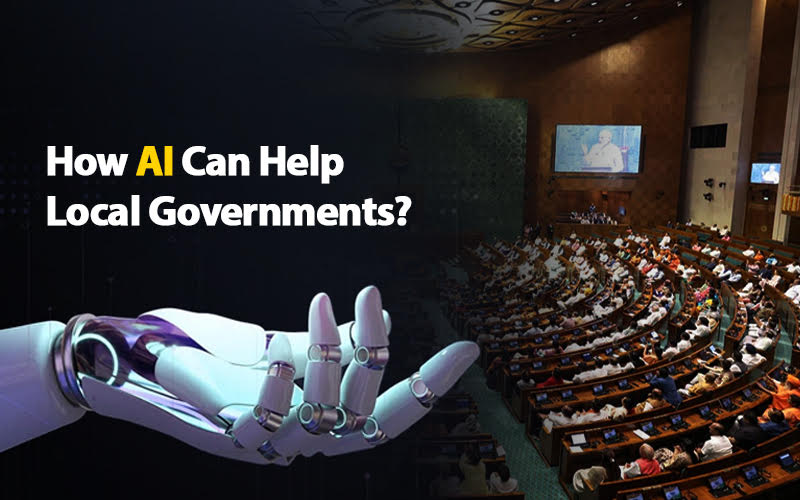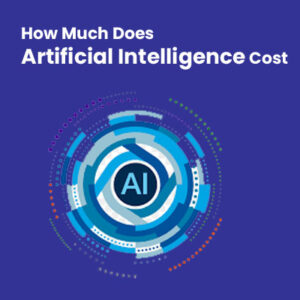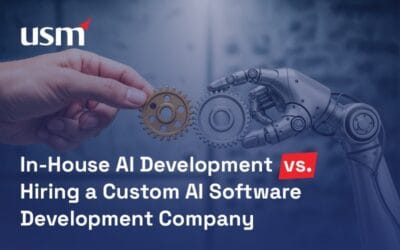How AI Can Help Local Governments?
How AI Can Help Local Governments in 2025?
Artificial intelligence has impacted every sector in the world, including governments. As AI technology progresses, it presents opportunities for local governments to increase efficiency and make more informed judgments.
In 2025, AI will assume the lead in managing complicated urban environments, allocating resources efficiently, and responding rapidly to residents. Local governments can employ AI to address long-standing concerns like public safety, transportation, and community engagement.
This article examines how artificial intelligence (AI) could help municipal governments run more efficiently, quickly, and successfully in the coming year.
Current State of AI Adoption in Local Government
Adoption of AI in local governments has been on the rise for the last few years. Some local governments started to explore the use of AI for better, if not even more sophisticated, solutions and service provisions to their locales. Cities like Barcelona and Singapore have adopted AI to grow as a smart city. The areas of focus for these projects are matters of traffic management, waste reduction, and energy efficiency.
Although AI for public services is gaining interest, there still are many barriers to implementing it wholesale. Budgetary constraints and lack of technical know-how and security issues with the data have hindered it so far. Most of the countries do not yet utilize their AI-aimed potentials in decision-making either. However, as there is a requirement for better services within public services, the influence of AI on municipal administration will accelerate by 2025.
Key Areas Where AI Can Help Local Government
AI has numerous mobile applications for helping local governments enhance their operations. Here are some important areas where AI can make a difference:
-
Automating Public Services
AI can automate public services, saving time and lowering errors. Chatbots, for example, can address frequent citizen questions around the clock. This minimizes the workload of government personnel. Virtual assistants can help people with tasks such as applying for licenses or paying taxes online. This improves service delivery times and efficiency for both citizens and government staff.
AI can, therefore, assist governments in better judgments toward making critical decisions by analyzing data and predicting problems. For example, AI can help identify which routes require freeways by analyzing data from traffic sensors. AI also predicts possible crimes, and it is quite possible for law enforcers to prepare ahead of an issue erupting. This proactive approach will help save money while improving public safety at the same time.
-
Resource Management
AI can help them manage resources such as water, waste, and energy. Artificial intelligence can, for example, detect water leaks and also reduce water system waste. AI-based systems assist in giving control over energy consumption in public buildings and consequently keeps reducing expenditures. These upgrades enable governments to function more sustainably while reducing the waste of resources.
-
Transport and Urban Planning.
Artificial intelligence is used to improve urban transport systems. It can control traffic lights and therefore enable decongestion. This can also be utilized in plotting routes for public means of transport based on commuters’ data. As such, transportation networks are tailored according to the needs of the populations. AI enhances people’s movement as well as around cities, hence making them habitable.
Improving Citizen Services and Engagement
AI-powered solutions can improve how local governments communicate with the public. Governments can use AI to create online public forums where residents can express their issues or leave comments. AI can monitor these discussions and flag pertinent issues as actionable.
Municipal governments can also employ AI to provide citizens with real-time information. AI can automatically send notifications depending on location and urgency, such as an emergency notice, forthcoming event, or road closure. Citizens can stay updated without having to seek information by receiving notifications directly to their phones.
Customization of public services is another benefit of artificial intelligence. Governments can provide services that fulfill certain needs (helping the elderly or those with impairments) by evaluating citizen data. Government services are therefore more widely available and inclusive to the whole community.
Artificial Intelligence in Security and Public Safety
This enhances safety and security for the public at large. The local governments can choose to use AI-based surveillance systems that will allow them to monitor the public space in real-time. They will pick on the suspicious activities and alert the authorities before things get out of hand. AI is helping law enforcement in analyses of crime trends, resource allocation, and even predicting hotspots of crimes.
Predictive policing is an embryonic field wherein artificial intelligence is doing much to influence it. It can help police authority to stop crimes before being committed by making use of historical crime data. At the same time, it has some obvious ethical questions related to privacy and justice. The local governments should ensure that the efforts of AI are transparent and not biased toward certain groups of people.
AI has another impact on disaster response. The capacity to foresee the path of natural disasters like hurricanes and floods is enabled by AI systems. This allows local authorities to prepare ahead of time, that would prevent infrastructural damage and protect citizens.
Increasing the Effectiveness of Government
AI can automatically deal with a number of routine administrative tasks which municipal governments face on a daily basis. Through the use of AI, a variety of clerical and data entry functions dealing with document processing and public records management are addressed. Government employees will then be able to deal with more complex issues that require human creativity. As a result, productivity as a whole improved.
Artificial intelligence can also be useful in budgeting and financial management. It may study the patterns of expenditure and predict future expenditures to help the local governments manage their resources well. Furthermore, AI-based systems may detect anomalies in a financial transaction that will reduce fraud and waste.
Challenges and Ethical Considerations.
While AI provides several benefits, its adoption in local governments presents hurdles and ethical concerns. One of the main concerns is data privacy. AI systems depend on vast volumes of data, which are frequently obtained from citizens. These data should also be kept safely by the respective local governments so the privacy of citizens, and breach of data, are avoided.
One ethical concern is bias in AI systems since AI algorithms only perform as well as the data used to train them. So, biased data can lead to unjust or discriminatory results. This could result in specific groups being unfairly targeted or excluded from services. Governments must ensure that their artificial intelligence systems are transparent and accountable, with clear criteria for decision-making.
The next concern is safety. People should be careful while using AI systems in areas like public service delivery and law enforcement. Local governments need to interact with the public, specifying the advantages of AI and being open about its application.
Future Trends and Opportunities for AI in Local Governments.
The importance of AI in municipal governments is expected to increase further in the coming years. More advanced AI technologies are expected to be adopted by 2025. Machine learning and natural language processing will become increasingly popular in fields like public health, urban planning, and environmental monitoring. These technologies will enable governments to make better-informed judgments and respond to issues in real-time.
One rising trend is the use of artificial intelligence (AI) in environmental sustainability. Governments may employ artificial intelligence to track pollution levels, manage natural resources, and build more sustainable cities. With climate change continuing to exert its impacts in the world, it will similarly play a key role in assisting cities’ adaptability and resilience with AI.
This will continue to develop with AI-powered platforms that allow citizens to communicate directly with government services. This would, therefore, encourage more individualized services and real-time contact. It would be important for the locality of governments to stay ahead of such advances in order to increase their productivity and improve citizens’ results.
Conclusion
AI is changing the way local governments work, like providing powerful tools to improve efficiency, increase citizen participation, and make better decisions. AI brings previously inconceivable solutions to local governments, such as automating public services, anticipating crime, and managing resources.
Though data privacy, bias, and public lack of trust issues do arise, they can be solved through careful and transparent AI technology use. The advancements of AI can be capitalized upon by local governments as AI matures, answer the needs of communities well into 2025 and beyond.
By intentionally engaging in AI, local governments can build a safer, smarter, more effective community for the betterment of all people.






















